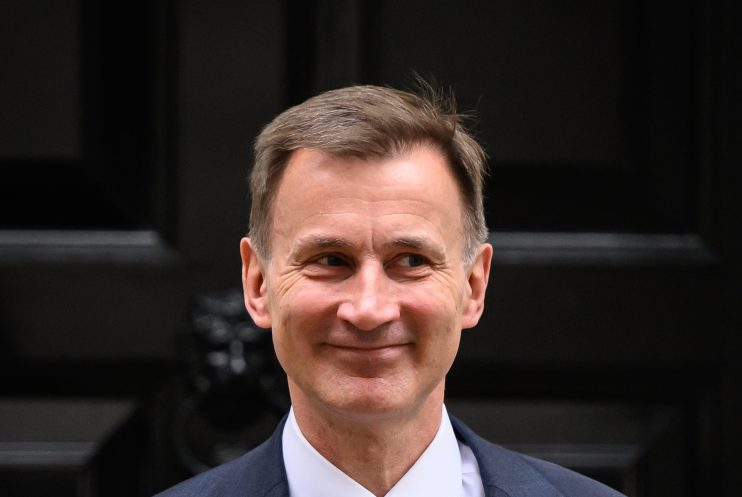Autumn Statement: 110 measures for growth and an election speech from Hunt

Make no mistake, this was an election speech.
When Rishi Sunak strode through Portcullis House, instead of taking his ministerial car into the Houses of Parliament, he was a man ready to start knocking on doors.
And Jeremy Hunt, with his slate of tax cuts for businesses and individuals, was arming him with a manifesto for the next election.
Only seven weeks ago, the Chancellor looked down the barrel of a camera at Conservative Party Conference and somberly told members that now was not the time to be cutting taxes – even though the tax burden was at its highest level in 70 years.
A very different politician stood up at the dispatch box. He promised to end the era of big government – by cutting a legacy of high spending – and ensure a “compassionate Conservative government” led the country into the next election. The pitch had a distinctively Cameroon ring to it, and marked a change from the “homelessness is a choice” rhetoric levied by the former home secretary.
For the business community, the decision to make full expensing permanent will be welcome news. The City has had its ear bent by the Labour party, and the party conference in Liverpool was a remarkably corporate shindig compared to years past. But corporate Britain is instinctively Conservative, and while they are preparing for a Labour government, there will be those who were just waiting to be swayed.
But years of being downtrodden by Westminster politics has left them sour. PwC, for example, said the decision on expensing will be “massively welcomed” but reminded us of the increase in corporation tax, and the end to the super-deduction relief which came into effect in March 2023.
“This certainty and long-term vision on investment policy… is a welcome signal that the UK is open for business,” the accounting firm said.
For those with memories functioning longer than three years, these tax cuts are in response to significant tax hikes Rishi Sunak presided over as Chancellor.
If Jeremy Hunt was trying to figure out exactly who started “big government” in the Conservative party, he needed to look no further than a glance towards his next-door neighbour.
The cut to National Insurance by two per cent will only make a real difference thanks to the Right Honourable Liz Truss. If Rishi Sunak had had his way, a two per cent cut would have amounted to about 0.75 per cent, after his 1.25 per cent rise in 2021.
Unluckily for Hunt and Sunak, though, the Office for Budget Responsibility has a memory far longer than a goldfish’s.
No matter how ably the Chancellor spun the idea of Britain hitting 0.8 per growth in 2025, the watchdog was at pains to call BS.
Not only would inflation remain higher for longer than originally forecast, but even with the cuts announced today, the tax burden “will still rise in each of the next five years to a post-war high of 38 per cent of GDP”.
Thanks to inflation spurring on record wage growth (which, by the way, pushed up spending on pensions by 8.1 per cent due to the controversial triple lock), fiscal drag will also pile an extra £44bn back into Treasury coffers by 2028.
The impact of the cut to National Insurance Contributions will amount to just under £10bn by the same time.
In fairness to Hunt and Sunak, it was a politically-adept financial plan, appealing to businesses, the self-employed and working-age individuals. His “110 measures for growth” were almost ready-made for pamphlets to hand out at an election; these were plans which ordinarily be piled into a Spring budget.
However overall Hunt’s scheme lacks a central theory, which is a problem spanning much of modern Conservative politics. In the appointment of David Cameron, and with this new financial statement, Sunak is digging into financial moderatism to win over voters, but this comes only after a year of testing out a tilt to the right of the party with rows on immigration and culture wars. Even with his current plan, he risks patronising voters with claims of growth and “getting inflation down”, when the OBR says the opposite is true.
In the last year, the Conservatives have tested a host of different slogans, from “longer-term decisions for a brighter future” to “stop the boats”, alongside various other pledges and sub-pledges.
Hunt’s Autumn Statement was an election speech, and it was a good one at that, balancing the competing interests of people he might yet win over. His next mic-drop moment might be when he announces an election sooner than next Autumn.
